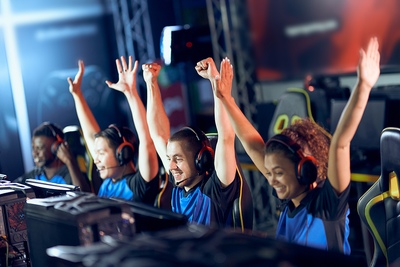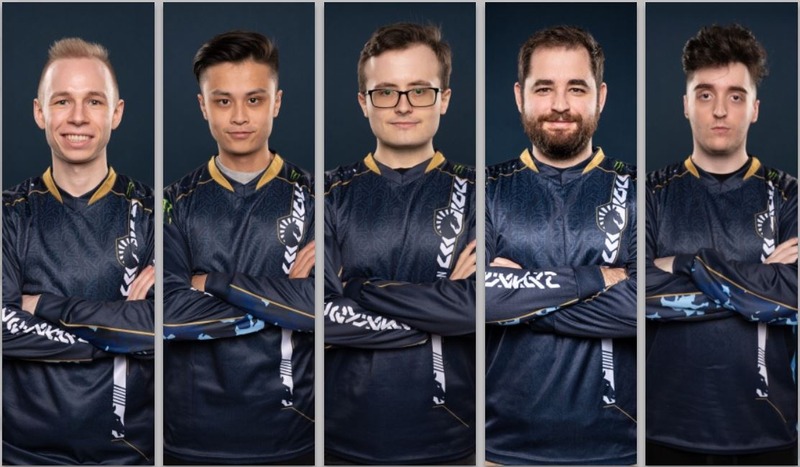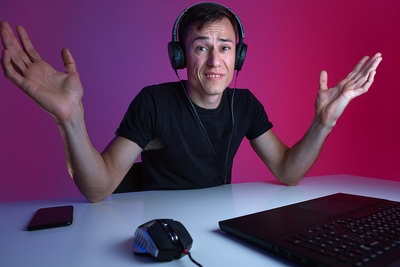 Are Esports Players Considered Athletes?
Are Esports Players Considered Athletes?
According to the Cambridge Dictionary, an athlete is “a person who is very good at sports or physical exercise”.
Therefore, if Esports is indeed considered a sport, as the name suggests it is, then surely those that compete, especially at the highest level, are athletes?
It is certainly the logical answer based on language alone, but you will have a hard time convincing some people that Esports professionals are truly athletes.
As it is a topic likely to divide opinion, it is worth looking at it from both sides.
So, in this article we will examine if Esports players should be considered athletes and if they generally are.
Definitions Of An Athlete

We began by providing the Cambridge Dictionary definition of an athlete, but so we have a more rounded approach, let us take a look at how other dictionaries describe the term.
- “A person who is proficient in sports and other forms of physical exercise” – Oxford Dictionary
- “A person who is trained or skilled in exercises, sports, or games requiring physical strength, agility, or stamina” – Merriam-Webster
- “An athlete is a person who does a sport, especially athletics, or track and field events.” – Collins Dictionary
- “A person trained or gifted in exercises or contests involving physical agility, stamina, or strength; a participant in a sport, exercise, or game requiring physical skill.” – Dictionary.com
If we, for argument’s sake, are happy to accept that Esports is indeed a sport then Esports players would meet the definition for Oxford and to an extent Collins. The requirement of ‘physical strength, agility or stamina’ however mean that an Esports professional would not fall under the definitions provided by Merriam-Webster or Dictionary.com, although some would reasonably argue that Esports does require agility, both mental and of the hands, and also stamina, as contests often go on for several hours.
This really underlines the crux of the issue. If you are happy to simply consider anyone who plays any sport to be an athlete then Esports players must be athletes too. If, however, you say that only disciplines that require extremes of physical strength, agility or stamina qualify as sports, then things look much greyer. We examine whether Esports really is sport in a separate feature but the debate over whether exponents are athletes is subtly different. There are, for example, those that accept darts and snooker as sports but do not believe that professionals are athletes.
Clearly for some this is a simple black and white issue and they have a firm belief one way or the other. However, we believe it is actually quite nuanced so let us now look at both sides of the argument.
Esports Players Are Athletes

There are several reasons why someone can reasonably consider Esports pros to be athletes. For one, they participate in a sport that requires masses of dedication and training. There are so many people playing the most popular Esports games that only truly exceptional talents make it to the very top. Nobody is just born with this exceptional talent either, it requires years of graft and targeted practice to hone and develop the physical and mental skills required.
In 2020, Medium published an insightful article looking at the training regimes of various Esports teams. They found players train roughly 50 hours a week, as a group, plus many individuals choose to train separately on top of this. They do so while following a customised diet as nutrition is key to performance and reaction times. Much like with other sports, teams will also review past performance with their coach and analyse what went right and wrong.
The training itself uses state of the art technology that focuses on key functions like attention, memory and reaction time. Training exercises will even mimic real-life situations with crowd noises and changing lights used to get players familiar with the possible distractions they may face in a competitive setting. In addition to training being closely related to the game itself, Esports teams now hire fitness coaches as standard. The margins between winning and losing are so small that being in physically better shape can end up making all the difference and certainly has a direct impact on reaction times, endurance and the ability to maintain concentration for extended periods.
According to a study carried out by the Queensland University of Technology in 2020, the impact of this is that Esports players are between 9% and 21% more likely to be at a healthy weight compared with the general population. They also smoke much less and drink less too, thus firmly challenging the stereotype that people who play video games competitively are sedentary and obese. The study added that “As part of their training regime, elite esports athletes spend more than an hour per day engaging in physical exercise as a strategy to enhance gameplay and manage stress”.
Although there is still less focus on cardiovascular activity compared to other sports, in many ways a typical week for an Esports player closely resembles that of ‘traditional sports’ pros. The idea that Esports players sit in their underwear all day and simply play games until the early hours of the morning is way off base. There is a huge emphasis on a healthy diet, a decent level of physical fitness, consistent sleep and other aspects of well-being. All of this has helped move Esports professionals much closer to what many would consider a ‘normal’ athlete to be.
Esports Players Are Not Athletes

From the definitions of an athlete we provided earlier, there is regular reference to physicality and excelling at a sport that is physically demanding. This certainly feeds into the more traditional idea of what an athlete is. After all, an ‘athletic’ physique means someone with a decent amount of muscle mass and a very low body fat percentage. Having an ‘athletic’ build and the six-pack that comes with it is what a lot of people aspire to gain and it is something required to perform at the very top level across many sports. You may occasionally find a football (often goalkeepers) carrying a little excess weight but by and large anyone playing at the higher levels will have an impressive physique.
While Esports pros do some physical training, it is nowhere near the levels required for sports such as tennis, rugby, football and most of the more traditional sports. These require regular gruelling sessions that push them to their physical limits. Regular sessions at the gym are something of a must too as it is so important to maintain and/or build muscular strength. In a football match, a typical player may run 10 or 11 kilometres over 90 minutes, with many explosive sprints included in this. Rugby players on the other hand might cover 7km in 80 minutes but they face an added physicality having to withstand all the crunching challenges.
Ultimately, very few people would ever look at an Esports player and think “wow they are such an athlete”. There may be a few exceptions that have a passion for the gym too but them being so fit will be merely a side hobby and will not be key to their Esports success. The same could be said about darts and snooker players, to name just two examples. In the modern era fitness is taken far more seriously than it was in the past and some professionals in these sports may be extremely fit and possess athletic capabilities. But few believe this is central to their success in their chosen sports.
Is There Currently A Consensus?
 Absolutely not. There is a wide range of different opinions when it comes to considering if Esports players are indeed athletes. We can certainly see both sides of the argument but we would say that there is a more convincing case than some people might think to answer this question in the affirmative.
Absolutely not. There is a wide range of different opinions when it comes to considering if Esports players are indeed athletes. We can certainly see both sides of the argument but we would say that there is a more convincing case than some people might think to answer this question in the affirmative.
The competitive Esports industry has changed significantly in recent years with players increasingly treated like standard athletes. Most take genuinely good care of their bodies to ensure they can play to the best of their abilities. Regular training, real consideration for nutrition and impressive levels of mental stamina mean that Esports are bridging the gap between themselves and more regular “athletes”. A gap nevertheless remains though and as it will never be fully bridged, we are not expecting a consensus to be formed on the matter for a long time to come.
Of course, many will question whether or not it really matters how we view Esports professionals, nor whether we consider it to be a sport at all. As a famous chap from Stratford-Upon-Avon once wrote, “a rose by any other name would smell as sweet”. We would suggest this is largely true, although the words we use to describe things do have an impact on how they are perceived. For many, especially those over a certain age, Esports is “just people playing computer games”.
If Esports pros began to be more widely viewed as athletes playing a sport that requires extreme skill and dedication, they would receive a lot more respect. That said, given the seven-figure prize money on offer in the biggest events they can probably cope just fine without the acceptance and acclaim of Gen Xers and Baby Boomers!
